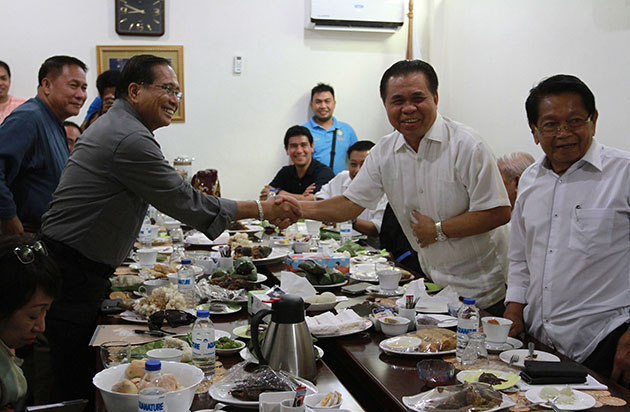Despite the negative view of about half of the population of Filipinos for charter change, the eventuality of success in shifting the system of government from unitary presidential to federal parliamentary or presidential is very bright.
The latest Pulse Asia survey issued on August 1 showed that 44 percent of Filipinos are not in favor of amending the 1987 Philippine Constitution. Only 37 percent of the respondents support the amendment of the Constitution.
But a seven percent margin or difference is not too big. It can be easily offset especially by someone like President Duterte, who so far put heart and soul into every of his programs like “War of Drugs”. The presidency is still the most powerful branch of government in this country. Good president uses it for the best of the nation --- and not for himself or herself.
But this push for federalism should happen within the first three years in office of President Duterte. It is a normal trend that popularity of the president wanes as he or she stays in office longer. Some described him or her at this stage as a political lame-duck. Moreover, popularity does not mean the lack of political enemies, who usually wait for blunder to happen and then they will pound on him mercilessly. Until January 24, 2015 no one had openly attacked former President Benigno Aquino III. But when the Mamasapano incident happened, it opened the floodgates of criticisms against him as if that he had done any good to this country. It also caused the non-passage of the proposed Bangsamoro Basic Law (BBL).
The Bangsamoro people will naturally go all-out for this move, after the government and the MILF leadership agreed to push the passage of the BBL first, ahead of the move to amend the 1987 Constitution either by constitutional convention of constitutional assembly. The other reason is that in this country only the Moros and to a certain extent the Mountain Province had experienced living outside the suffocating control of the politico-military hegemony of what is Manila now. Throughout the Spanish period, the Moros were more or less living in independent sultanates, while those in the Cordilleras were less affected by the choking Spanish rule because of their rugged mountain terrain. During the American regime, the Moro Province and Mountain Province were created for these regions, respectively, and were administered directly by Americans. Currently, both regions have autonomous governmental set-ups although they are more administrative than autonomous.
But for this popularity to stand the test of time, good and sound policies must be adopted first, on whose basis words and activities must be proceed. These signs we are seeing in the current presidency.
http://www.luwaran.com/home/index.php/editorial/23-1st-issue-1-7/836-popularity-can-make-the-difference

